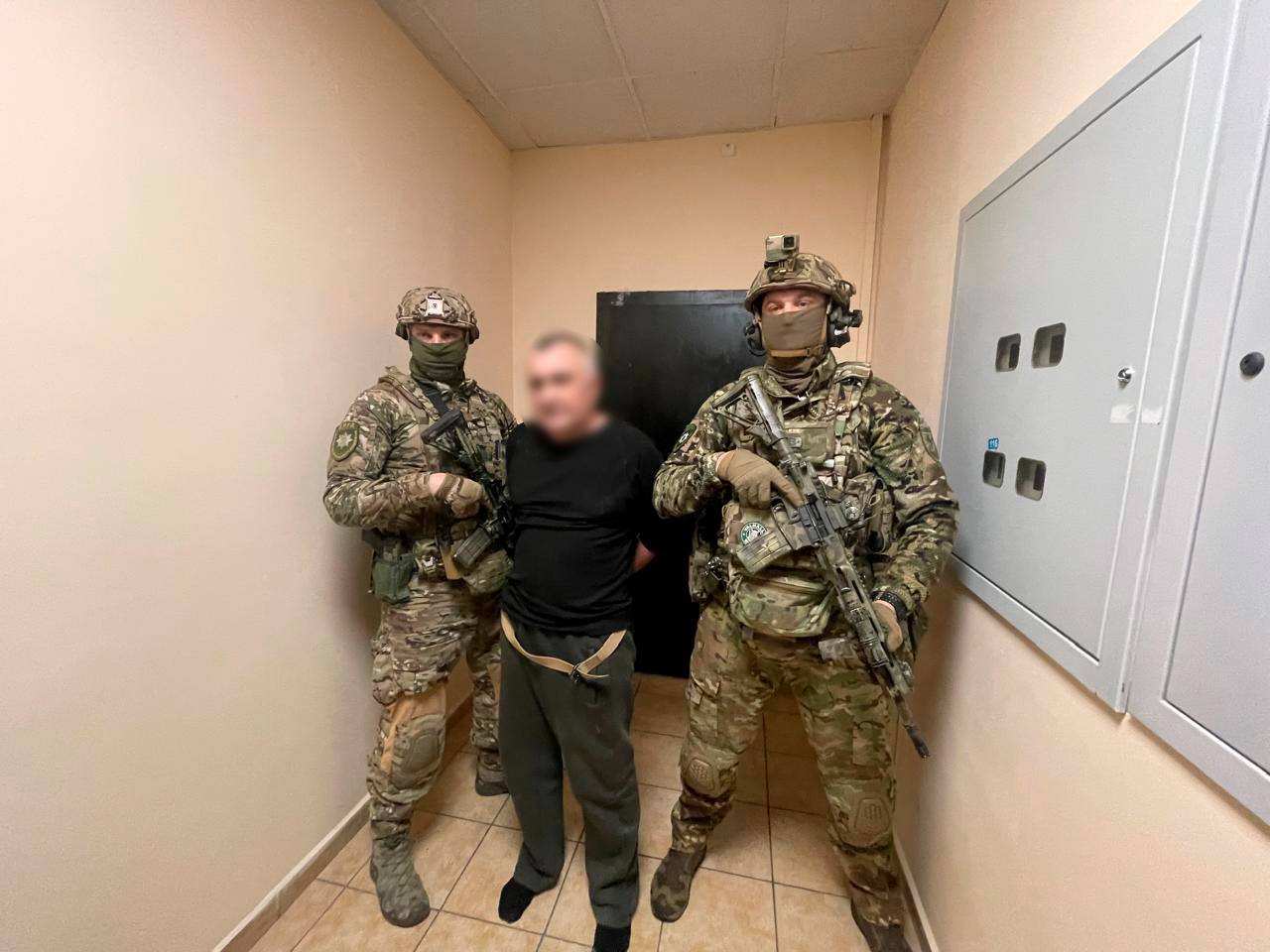Decade-long campaign of assassinations: six outspoken Ukrainian voices eliminated for anti-Russian position
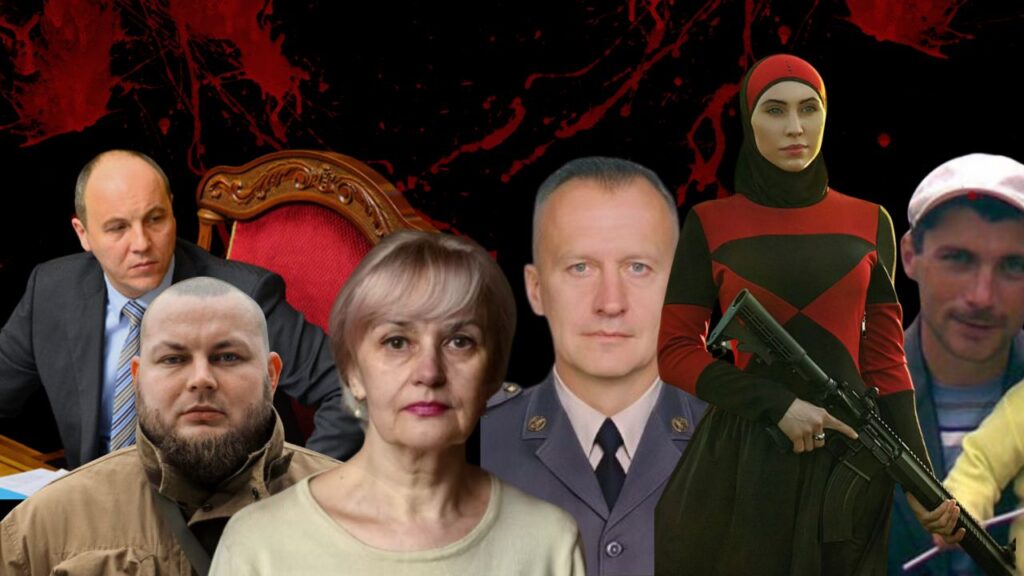
On 30 August, a Ukrainian politician Andriy Parubiy was shot eight times in the back while walking in Lviv in broad daylight. He died from his injuries.
The detained suspect claims he acted out of “revenge against Ukrainian authorities” after his son went missing in action near Bakhmut. But investigators haven’t ruled out Russian involvement.
Parubiy was hardly welcome in Moscow. The 52-year-old former parliament speaker had spent decades promoting Ukraine’s break from Russian dominance and participating in the key democratic revolutions that threatened Kremlin’s influence.
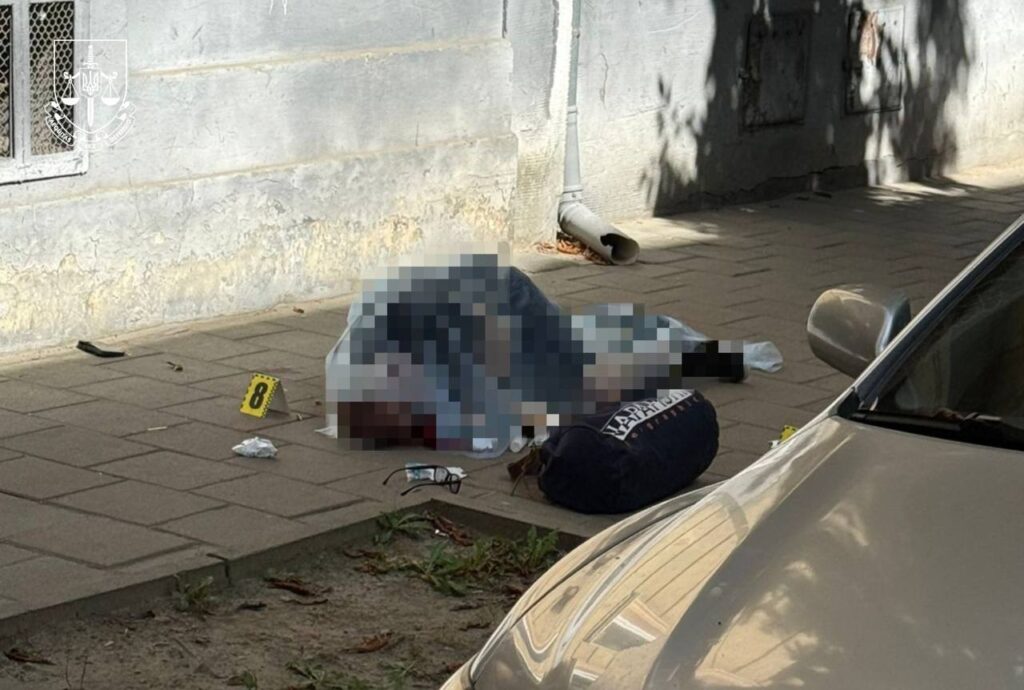
Ukraine’s parliament responded swiftly to his death. On 4 September, 296 lawmakers voted to appeal to European parliaments, condemning Parubiy’s murder as “an act of political terror by Russia.” They demanded international investigations and stronger sanctions.
Six cases below reveal this deadly pattern: each victim worked toward Ukraine’s democratic future in the EU instead of accepting life as a Russian puppet state.
Reshat Ametov: First victim of Crimean occupation
Crimean Tatar activist
Reshat Ametov, a 39-year-old Crimean Tatar and father of three, became a symbol of resistance to Russian occupation back in 2014.
He worked as a welder in Simferopol and maintained active political views. On social media, he frequently criticized Russian policies in Chechnya, Tatarstan, and Bashkortostan, and strongly supported the pro-democracy Euromaidan protests in Kyiv.
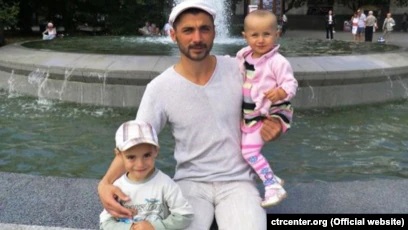
The year 2014 marked a turning point in Ukraine’s modern history. Following months of the Euromaidan protests that demanded closer ties with the EU and democratic reforms, pro-Russian president Viktor Yanukovych ordered security forces to open fire on demonstrators in February, killing over 100 protesters. Faced with massive public outrage as even more people flooded the streets demanding changes, Yanukovych fled the country.
Russia exploited this chaotic political situation in Ukraine and sent troops to Crimea, while simultaneously supporting separatist movements in eastern Ukraine. This Russian intervention would eventually escalate into the full-scale war that began in 2022.
One man against the Russian oppressive machine
On 28 February 2014, Ametov announced his intention to protest Russia’s seizure of Crimean government buildings.
“Approximately on Monday I’ll go to the Council of Ministers. Standing protest. Do you also dare?” he wrote on Facebook.
Three days later, Ametov stood alone outside the seized building holding a Ukrainian flag. Surveillance cameras captured what happened next: three men in camouflage uniforms from the illegal “Crimean Self-Defense” formation forced him into a car at gunpoint. That was the last time he was seen alive.
This occurred in broad daylight as Russian forces consolidated control over the peninsula.
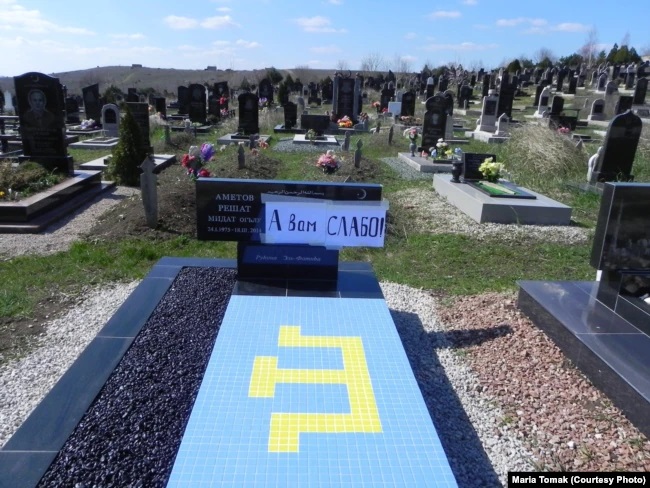
Tortured and killed for resisting Russian occupation in Ukraine
March 16, 2014 was supposed to be Russia’s moment of triumph—the day Crimeans would vote in a sham referendum to “legitimize” the peninsula’s annexation. The official results showed overwhelming support for joining Russia, but the referendum was conducted under military presence and is regarded illegal by the majority of international community.
However, the day before the staged vote, farmers made a horrific discovery in Zemlyanichnoye village, 60 kilometers from Simferopol.
A body lay partially buried in the earth, bearing signs of torture. The victim’s head was wrapped in tape, stab wounds marked the left eye socket, and hands remained cuffed. When authorities identified the corpse, the timing became clear: this was Reshat Ametov, the lone protester who had disappeared twelve days earlier.
Russian occupation authorities opened a criminal case in April 2014 but closed it after one year, claiming they could not identify the perpetrators. Ukrainian investigators later identified two “Crimean Self-Defense” members and a former Russian Armed Forces serviceman as suspects in 2019, while the case went to court in November 2023.
In May 2017, President Petro Poroshenko posthumously awarded Ametov the title Hero of Ukraine.
Ametov became Crimea’s first occupation victim, but not the last, according to Yevhenyi Yaroshenko of the KrimSOS organization. Human rights groups documented 59 enforced disappearances during the first decade of Russian rule. Seventeen people remain missing.
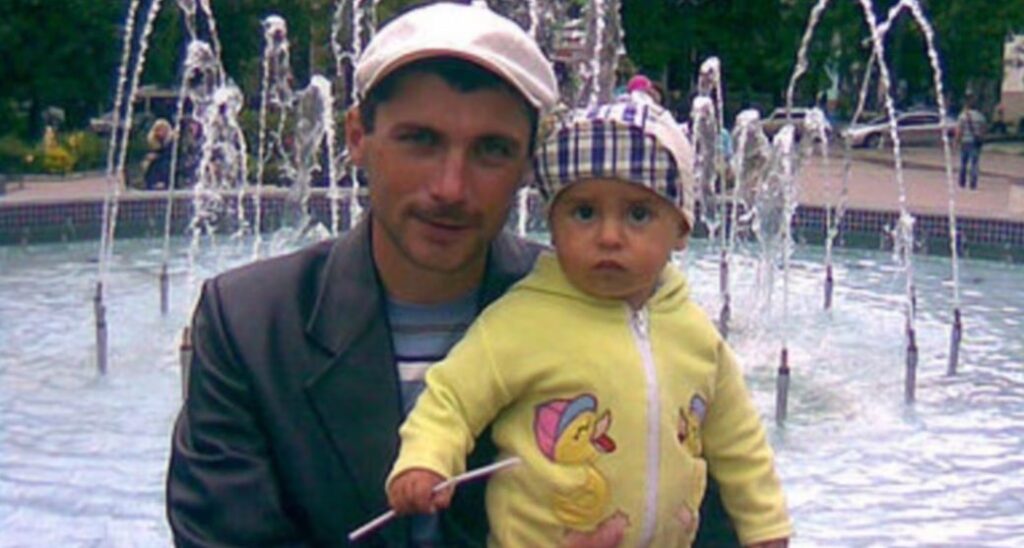
Amina Okuyeva: The Ukrainian-Chechen with two homelands, but one enemy
Studying medicine in Ukraine
Three years later and hundreds of kilometers away, another story of resistance was taking shape. Amina Okuyeva would become the woman who carried two nations’ struggles against the same Russian enemy, fighting with both medical skills and military weapons until assassins silenced her forever.
Born in Odesa, Okuyeva carried both Ukrainian and Chechen heritage. She lived in Moscow and Grozny before returning to Ukraine in 2003 due to the Chechen war.
During the Second Chechen War (started in 1999), she actively supported the resistance, but Chechen fighters convinced her to return to Ukraine and study medicine—they desperately needed trained medics as too many fighters were dying from treatable wounds.
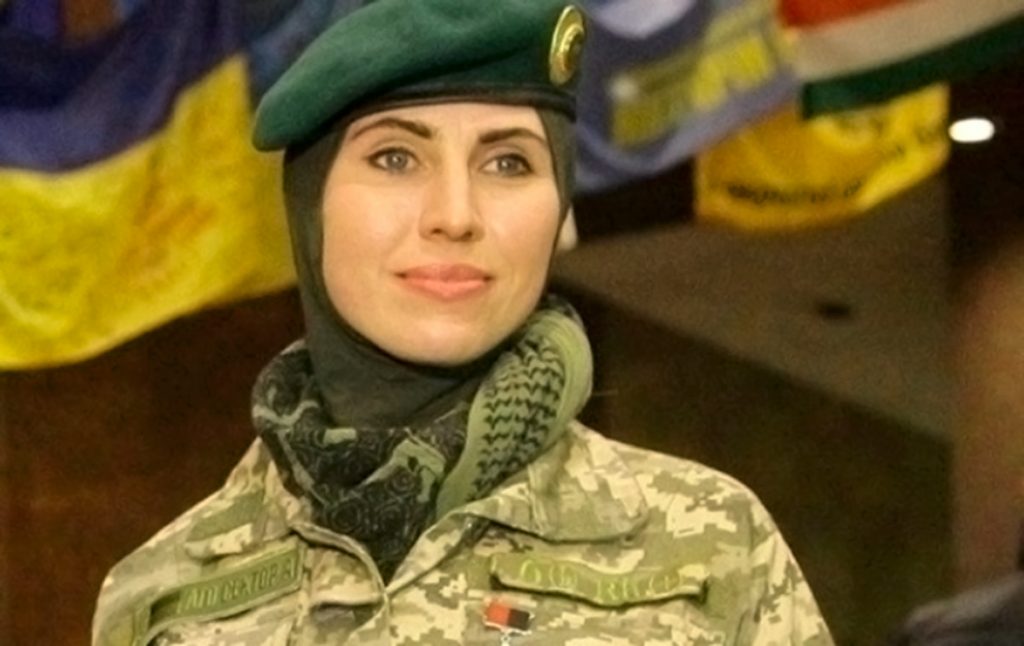
After completing medical education in Odesa, she worked as a surgeon while maintaining connections to Chechen resistance movements.
In 2009, she met Adam Osmayev, a Chechen exile accused by Russia of plotting to kill Ramzan Kadyrov, Putin’s puppet in Chechnya, and Vladimir Putin himself. Though they never legally married, they became life partners united by their shared opposition to Russian oppression.
Medic-turned-sniper in fighting Russia since 2014
When Russia launched its aggression in eastern Ukraine in 2014, just months after seizing Crimea, Okuyeva saw her chance to fight the same enemy that had devastated Chechnya.
She joined the Kyiv-2 volunteer battalion as a paramedic. Despite her official medical role, she participated in combat operations in Debaltsevo and Chornukhivo and served as a sniper in her final months of military service.
Okuyeva later became spokesperson for the Chechen Dzhokhar Dudayev Battalion, comprised mainly of Chechens opposing Kadyrov’s regime.
In 2015, Ukraine awarded her the “People’s Hero of Ukraine” order for defending the country.
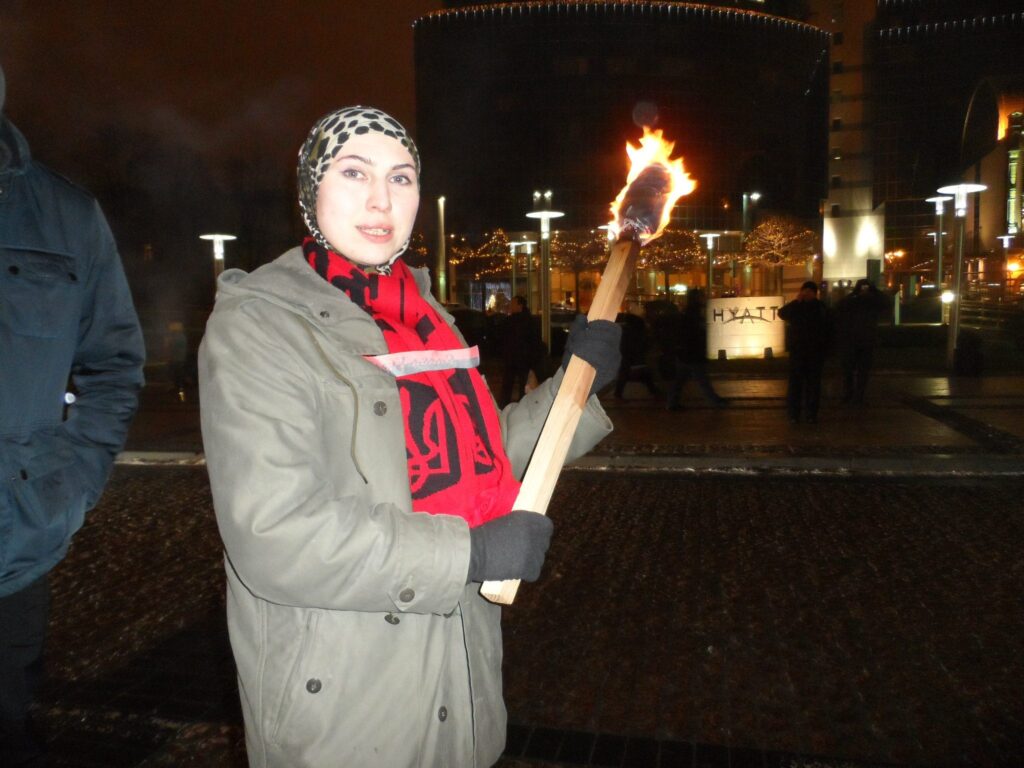
Okuyeva frequently criticized Kadyrov as a “national traitor” and Russian collaborator. His family had switched from fighting Russia in the First Chechen War to serving as Moscow’s puppet rulers after 1999.
Chechen exiles widely despise him for his brutal suppression of independence movements and human rights abuses.
“Kadyrovites are national traitors. There is no worse form of betrayal than national betrayal and collaboration with occupiers,” Okuyeva stated.
For Moscow, Chechens fighting alongside Ukrainian forces represented a double threat: not only were they effective fighters, but their presence contradicted Russian propaganda about protecting ethnic minorities from Ukrainian “fascists.”
Okuyeva’s vocal criticism of Kadyrov while serving in Ukrainian ranks made her elimination a priority for both Russian intelligence and Chechen loyalists.
Previous assassination attempts
Russian bloggers called her a “Chechen terrorist.” Kadyrov supporters sent death messages through social media. On 1 June 2017, a fake French journalist shot her husband Adam Osmayev during a staged interview. The assassin, Arthur Denisultanov-Kurmakaev, was captured, but the couple knew more attempts would follow.
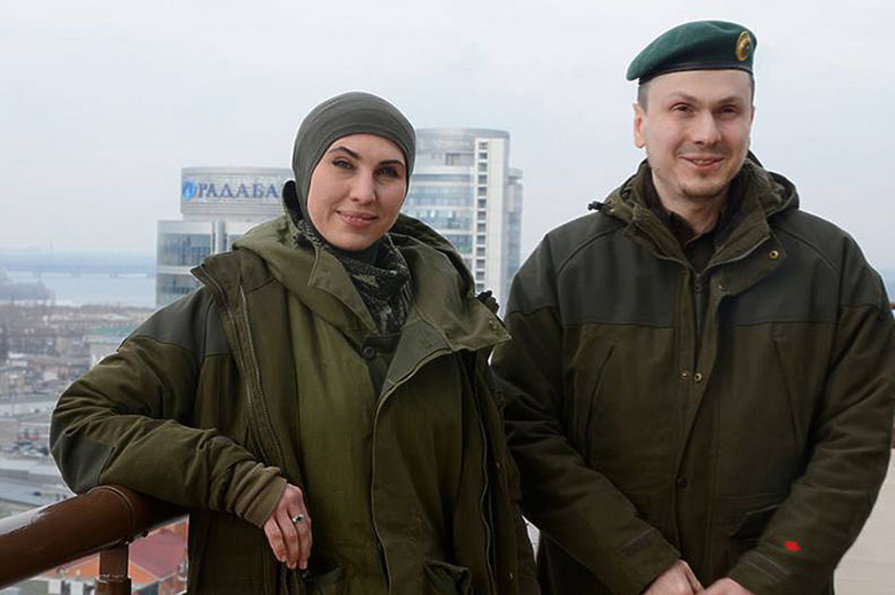
Okuyeva killed in car near Kyiv
Four months later, driving near Kyiv on 30 October, automatic gunfire erupted from roadside bushes. Her partner Osmayev hit the accelerator.
“The shooting came from the right side,” he recalled. “It lasted literally a few seconds until I got out of the shooting zone. But in those few seconds, unfortunately, she was hit.”
Okuyeva died instantly from head wounds. She was 34. Osmayev survived with a leg injury.
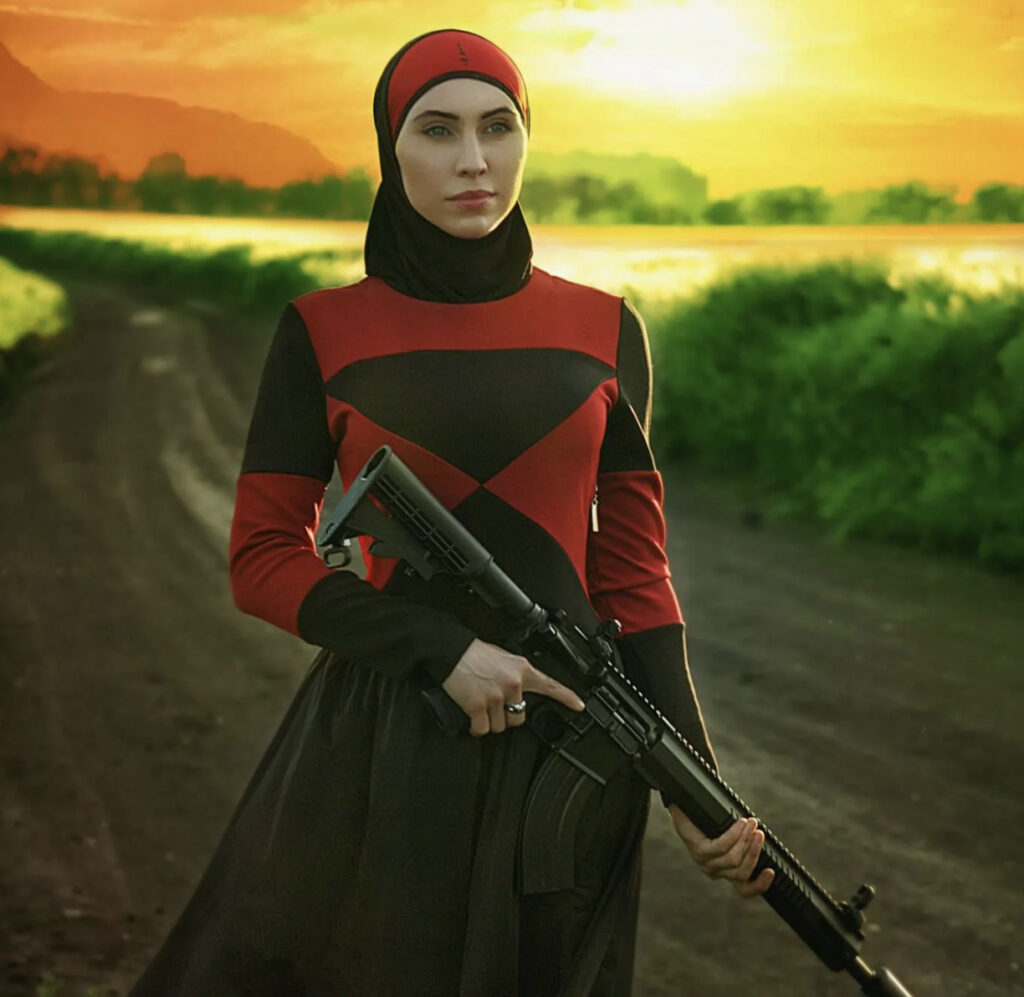
In January 2020, authorities arrested Igor Redkin, a 56-year-old from Dagestan, after his DNA was found on an abandoned Czech automatic rifle near the crime scene. Investigators identified seven members of the criminal group responsible for Okuyeva’s murder and connected them to other contract killings.
The prosecution alleged the assassination was ordered from Chechnya as revenge against Osmayev’s anti-Kadyrov activities.
Mamikhan Umarov, a Chechen political emigrant who had warned Ukrainian intelligence about the assassination contract, was himself killed near Vienna in July 2020, eliminating a key witness in the case.
Iryna Farion: Fighter for Ukrainian language
Academic and political career
As Ukraine’s resistance proved stronger than Moscow expected and Western support solidified after the full-scale invasion in 2022, assassinations on Ukrainian soil became more frequent and brazen as the next cases will demonstrate.
Iryna Farion built her career defending Ukrainian language and identity. After working as a librarian, she obtained philological education and became a professor at Lviv Polytechnic National University. In 2005, she joined the Svoboda party and was elected to parliament in 2012, where she headed a higher education subcommittee.
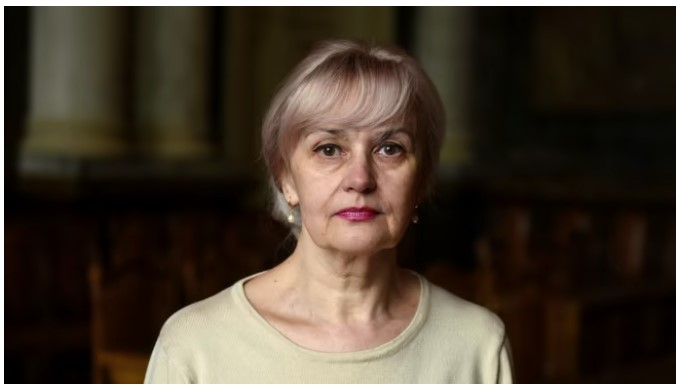
Following Russia’s 2014 annexation of Crimea and launch of war in eastern Ukraine, questions of language and identity became increasingly urgent for many Ukrainians, especially as Moscow consistently used “protection of Russian speakers” as justification for military intervention.
Farion turned language defense into political warfare, targeting anyone who dared speak Russian in official settings.
Controversial statements about soldiers
Farion’s advocacy for Ukrainian language often generated controversy due to her uncompromising positions.
She publicly challenged officials who spoke Russian, including then-Prime Minister Mykola Azarov, asking whether his poor Ukrainian reflected political bias or mental limitations.
In 2018, she described Russian-speaking citizens as “mentally backward traitors and Ukraine’s biggest problem.”
The rhetoric intensified after Russia’s full-scale invasion began in 2022. Farion criticized Russian-speaking Ukrainian soldiers, arguing they should call themselves “Russians” rather than Ukrainians.
“Russian-speaking warriors disgrace Ukraine’s Armed Forces,” she stated, adding that fighting internal “Moscow-speaking savages” was more important than battles on the frontline.
Her November 2023 comments triggered a firestorm. She described Russian-speaking “Azov” fighters as “crazed” and suggested Ukrainian soldiers speaking Russian had no right to be considered Ukrainian.
Security services (SBU) opened criminal investigations against her. Students demanded her dismissal from Lviv Polytechnic. Death threats flooded her social media.
At the moment of her assassination, the SBU investigation into her inflammatory statements about Russian-speaking soldiers remained active, with prosecutors considering charges for insulting military honor and dignity.
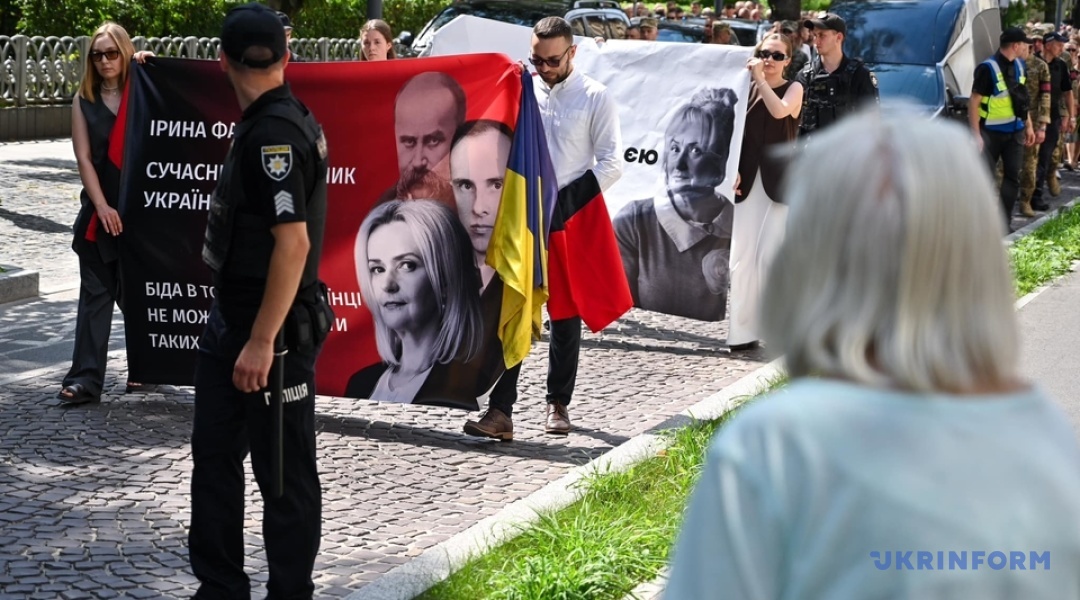
Ukraine remembers linguist Iryna Farion, target of Kremlin’s propaganda, assassinated in Lviv in apparent campaign against Ukrainian voices
Assassin allegedly killed her due to personal hatred
On 19 July 2024, an unknown gunman approached Farion near her Lviv apartment building and shot her in the head. She died in the hospital that evening.
For weeks, surveillance cameras had captured the same figure watching her building, studying her routines, learning her patterns.
Six days later, police tracked down her killer 300 kilometers away in Dnipro. Vyacheslav Zinchenko was just 19 years old when they arrested him. Investigators later discovered his digital footprint told a story of radicalization: he had joined neo-Nazi Telegram groups in 2022, that promoted violence and national intolerance.
The prosecution alleged that Zinchenko developed strong personal hatred for Farion due to her Ukrainian language activism.
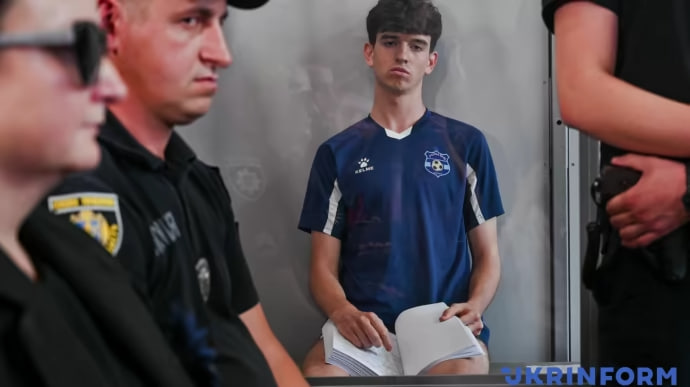
In August 2024, Zinchenko reportedly confessed to a cellmate that he killed Farion out of personal animosity, though he later claimed this confession was made under pressure. He faces life imprisonment on charges of premeditated murder motivated by national intolerance.
Some hated her, some were inspired
Despite the controversy surrounding her radical positions, Farion retained support among some Ukrainians who viewed her uncompromising stance as necessary resistance to Russian cultural influence.
Critics argued she promoted “ethnonarcissism” that prevented coexistence with different identities. But supporters countered that her provocative language was strategically necessary—dry academic discourse would never have reached millions or conveyed the urgency of her message.
The polarization became evident after her death.
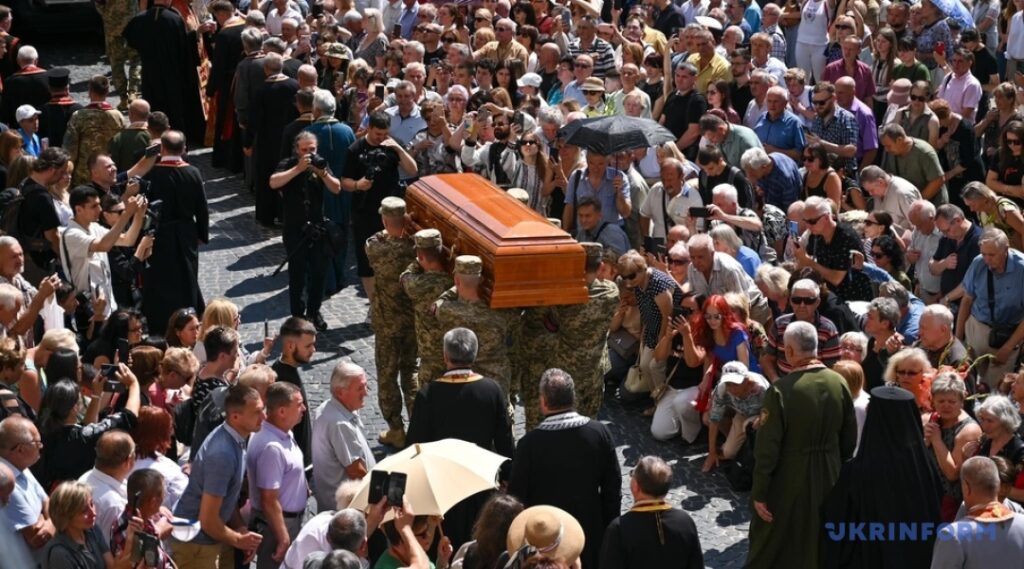
After Russia’s full-scale invasion made the Russian imperial threat undeniable, many who had previously criticized her positions began seeing her as prophetic rather than extreme.
Social media tributes after her death wrote that “no one defended the Ukrainian language as selflessly and passionately as she did.”
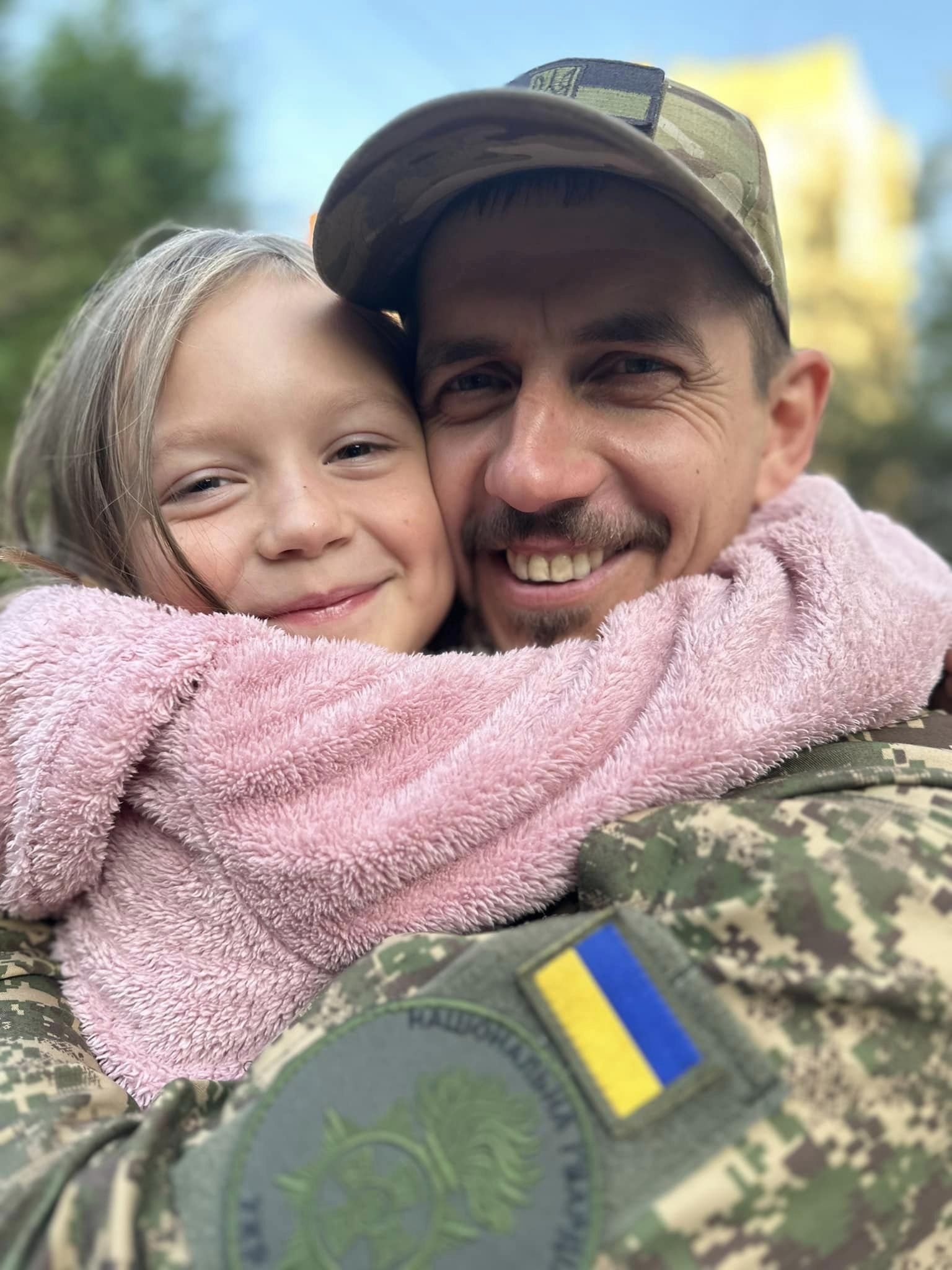
Son-in-law of slain Ukrainian language advocate and Russian critic Iryna Farion killed in combat
Demian Hanul: Ukrainian activist declared terrorist in Russia
Ukrainian activism in a city with large pro-Russian sentiment
Demian Hanul was a Ukrainian patriot in a city where such views made him a target. Odesa, with its historically large Russian-speaking population and pro-Russian sentiment, was hardly friendly territory for activists pushing Ukrainian identity. But Hanul didn’t back down.
Both he and his father Vadym participated in the 2013-2014 Revolution of Dignity that ousted Yanukovych, continuing a family tradition of resistance.
When Russia responded by seizing Crimea and backing separatists in eastern Ukraine, Hanul took part in the traumatic confrontations at Odesa’s Trade Unions House on 2 May 2014, where 48 people died in fires during clashes between pro-Ukrainian and pro-Russian forces. Russian media branded him a co-organizer of the tragedy and declared him a terrorist.
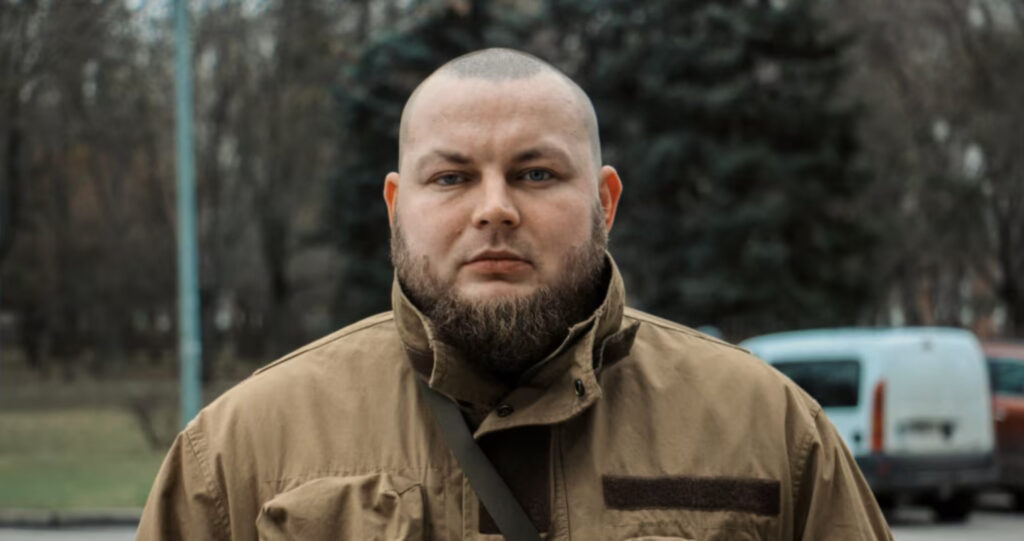
His activism also focused on removing Soviet monuments in Odesa, viewing each Lenin statue and Chekist memorial as a Russian imperial foothold in Ukrainian territory.
Moscow frequently invoked protection of these Soviet monuments to justify intervention since 2014, treating shared historical experiences as evidence that Ukraine belonged within Russia’s control rather than as an independent state free to determine its own commemorative landscape.
Hanul’s consistent opposition to Russian influence and imperialism made him a marked man. His activities challenging Moscow’s historical narrative and symbols led Russia to issue an arrest warrant against him in April 2024, accusing him of damaging military memorials.
Despite having a disability (he was wearing a prosthetic eye) Hanul repeatedly tried to enlist for military service but was refused. Instead, he channeled his patriotism into volunteer work, traveling to deoccupied territories in southern Kherson and Mykolaiv oblasts to provide aid and support reconstruction efforts.
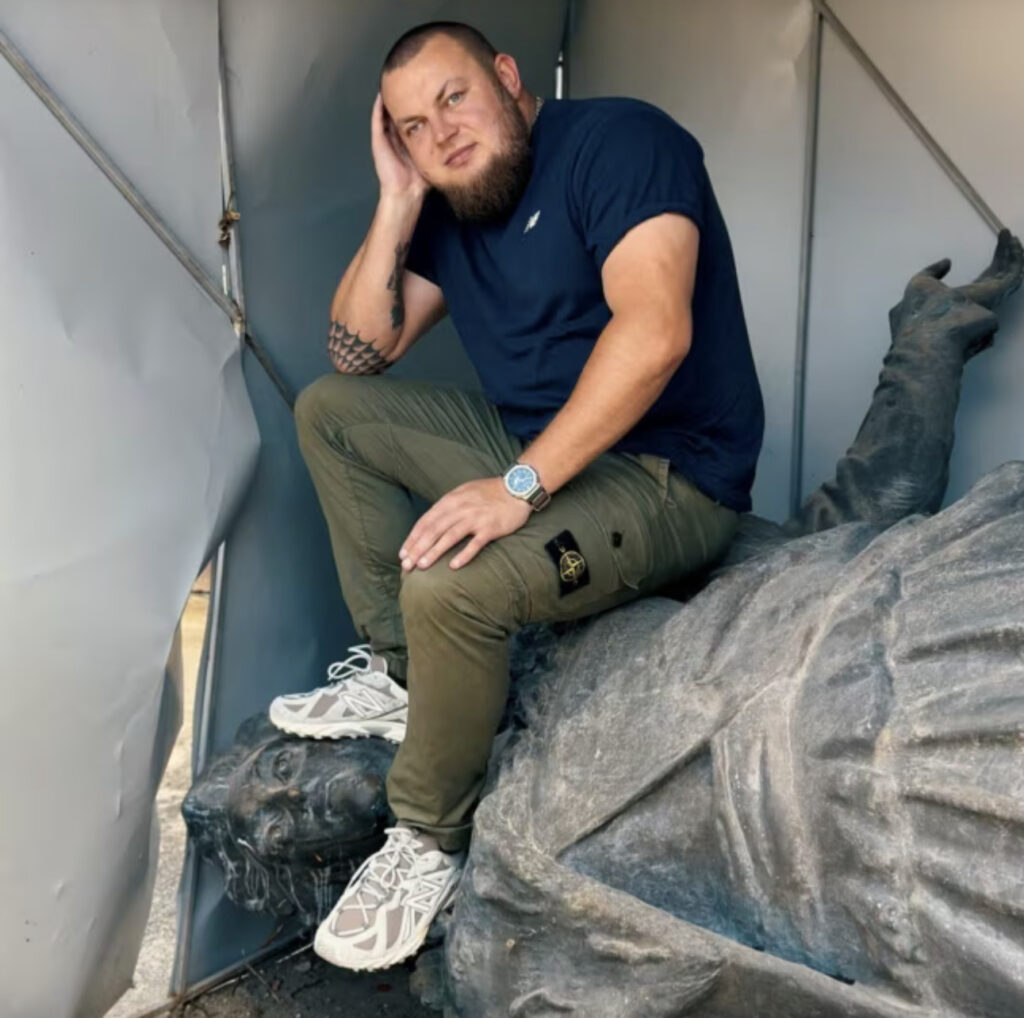
Escalating attacks and Russian bounties for his death
Hanul faced multiple attacks before his eventual killing. In 2020, unknown persons set fire to his BMW X5 and later shot at his vehicle near Vizyrka village. His car was also damaged with bats. In May 2023, a group in military uniforms physically attacked him in Odesa, leading to criminal proceedings.
In July 2024, Hanul reported threats on his Telegram channel:
“A whole psychological attack on my family has begun. Various Russian information resources announced a reward for attacking me of $5,000-$10,000.”
He requested protection from the SBU and police, who opened a criminal case for death threats. However, they did not manage to protect him.
Activist killed in broad daylight in Odesa
On 14 March 2025, a gunman shot Hanul at 10:30 a.m. in central Odesa and fled. Police detained the suspect within hours—46-year-old Serhiy Shalaev, a military serviceman and former mechanized platoon commander who had deserted from the army.
In court, Shalaev confessed to the killing. Investigators charged him with premeditated contract murder and illegal weapons possession.
Police are examining several motives: a contract killing related to Hanul’s pro-Ukrainian activism, personal animosity, or Russian involvement due to his public positions.
Ivan Voronych: Spymaster who hunted Russian commanders
His unit played key role in Kursk operation
Ivan Voronych spent decades in the shadows, building Ukraine’s most lethal capabilities against Russian targets. He worked for Ukraine’s Security Service (SBU) and served in the elite Alpha Special Operations Center, running what the New York Times described as “a unit that received technical support from the CIA.”
His operations included high-profile assassinations that shattered Russian proxy morale in occupied territories.
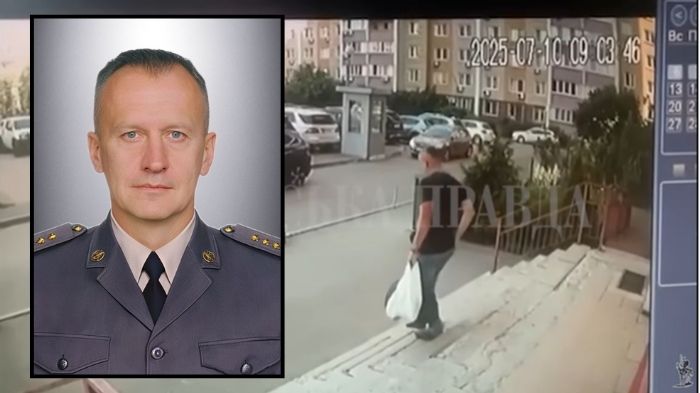
In 2016, his teams eliminated Arsen Pavlov (“Motorola”), a beloved Russian commander in occupied Donetsk, and Mikhaylo Tolstikh (“Givi”), another famous separatist leader. These targeted killings demonstrated Ukraine’s ability to reach enemy commanders deep in occupied areas, earning Voronych respected status within Ukrainian intelligence.
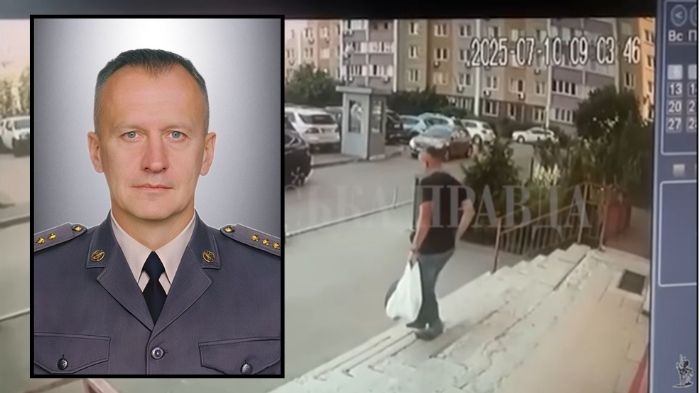
The brain behind Ukraine’s shadow war successes—Motorola and Kursk—gunned down in Kyiv parking lot
The colonel’s final mission involved Ukraine’s August 2024 offensive into Russia’s Kursk Oblast. His unit played a key role in the cross-border operation that seized Russian territory and held it for eight months, exposing Putin’s vulnerabilities and destroying a myth of Russian border’s inviolability.
Voronych’s high-profile successes made him a prime target for retaliation by Russian security services (FSB).
Russia wanted him dead as revenge
On 10 July 2025, Voronych left his apartment in Kyiv’s Holosiivskyi district around 8 a.m. A gunman approached in the parking lot and fired five shots from a silenced pistol. Voronych died instantly from multiple wounds. The killer fled in an SUV.
The targeting appeared to involve significant intelligence penetration, as the assassins knew Voronych’s exact address and daily routine. Former SBU officer Ivan Stupak assessed the killing as 99% likely to be a Russian special services operation, citing the professional nature of the attack.
Russians foreign recruits come to Ukraine to kill
Three days later, SBU chief Vasyl Malyuk announced the elimination of the Russia’s security service (FSB) hit team responsible for Voronych’s murder.
According to the investigation, the FSB had sent two foreign nationals – identified as Azerbaijani passport holders Gulalizade Khagani and Narmin Guliyeva – to Ukraine specifically to kill Voronych.
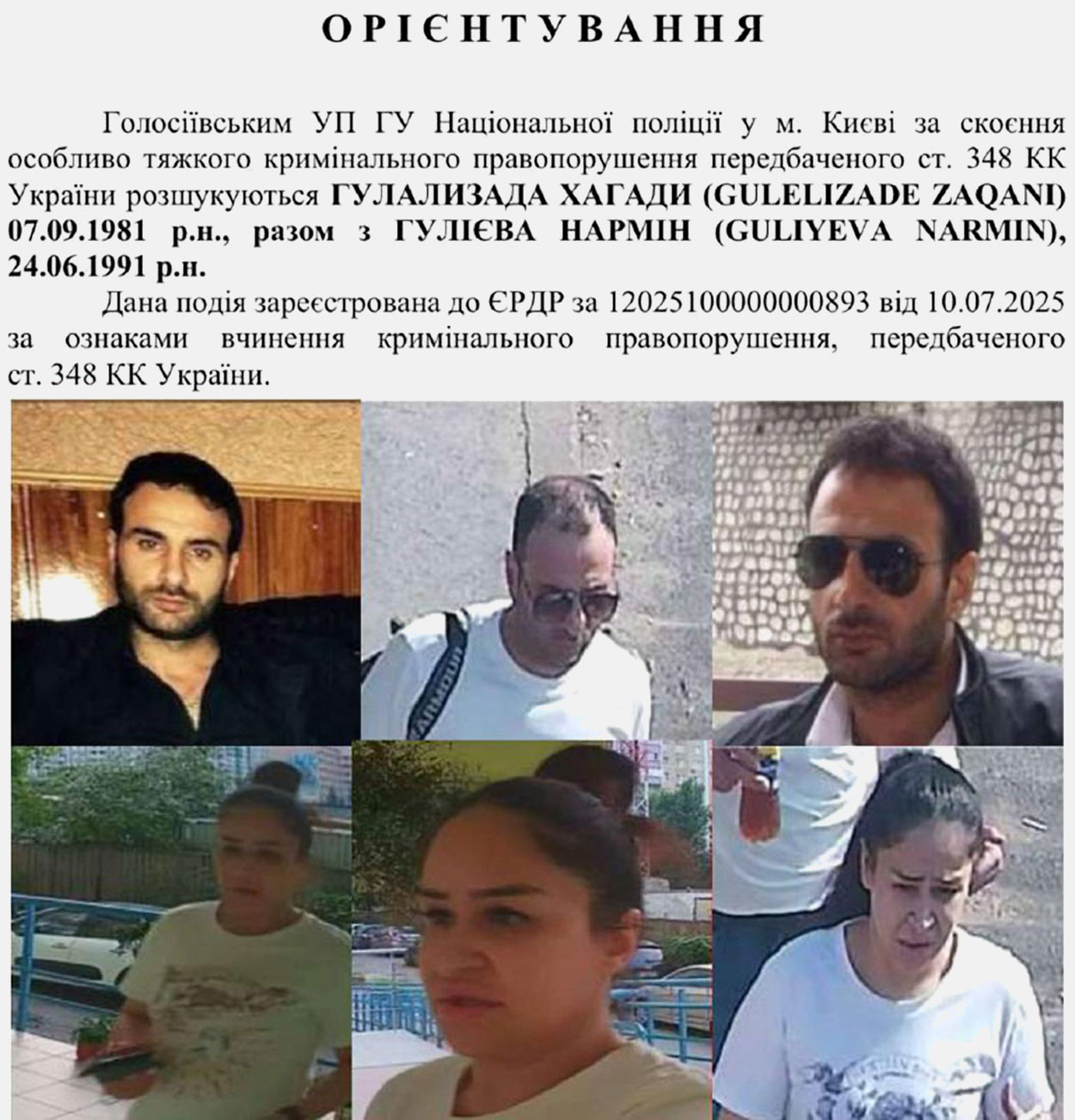
Russia’s foreign hit squad eliminated in Kyiv shootout after assassination of SBU colonel
The handlers instructed the duo to surveil Voronych’s movements and provided coordinates for a weapons cache containing a pistol with suppressor.
When law enforcement attempted to arrest them in Kyiv Oblast, the suspects resisted and were killed in the firefight. The FSB had used them as disposable assets, with no intention of extraction or exchange.
Ukrainian officials revealed that the vulnerability was that Voronych had been living at his registered address, which was listed in publicly accessible databases, allowing the assassins to establish surveillance and plan the killing.
Andriy Parubiy: Lawmaker who called for destruction of “Russian empire”
Now back to the assassination of Andriy Parubiy, whose suspected killer was detained and the investigation continues currently. Why was he targeted? What did the suspect mean by “revenge on Ukrainian authorities”? What kind of politician was Parubiy?
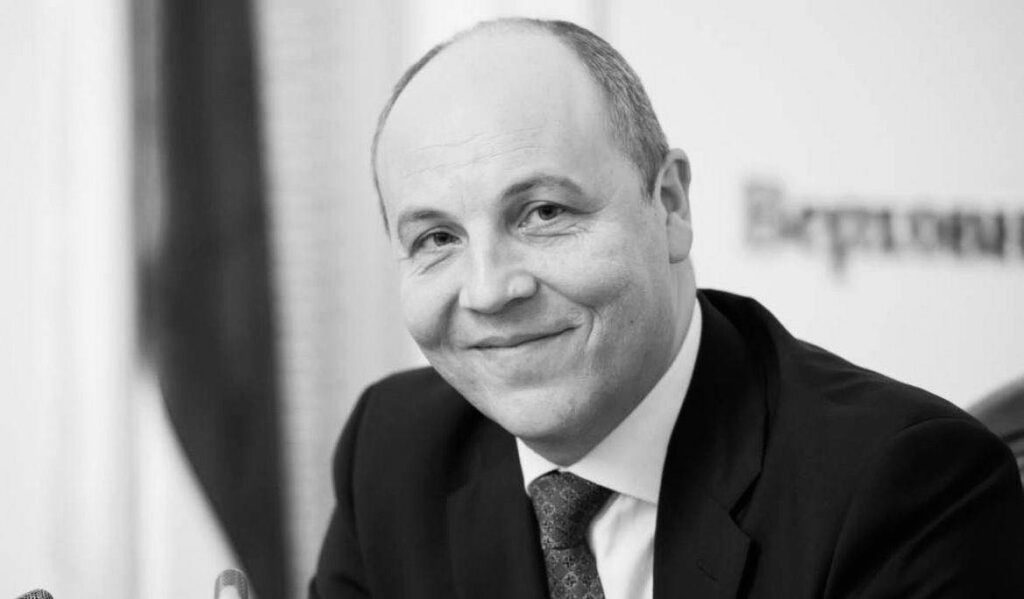
Parubiy’s party declared Russia “the cause of all troubles in Ukraine”
In 1991, the 25-year-old co-founded the Social-National Party, declaring Russia “the cause of all troubles in Ukraine”—a statement so radical that Ukraine’s Justice Ministry delayed registration for four years. However, history proved him right.
He played central roles in both the 2004 Orange Revolution and the 2013-2014 Revolution of Dignity, serving as commandant of key protest sites.
“From that megaphone I started the rally,” he recalled of Euromaidan’s first hours. “In the first minutes there were 70-80 of us, there were more police around us than us.”
Over three months, he transformed those initial 80 protesters into a sustained movement. He organized tent cities, built barricades, and created “Maidan Self-Defense”—a structured civilian militia that grew to 12,000 trained members by February 2014 and eventually toppled Viktor Yanukovych’s pro-Russian government.
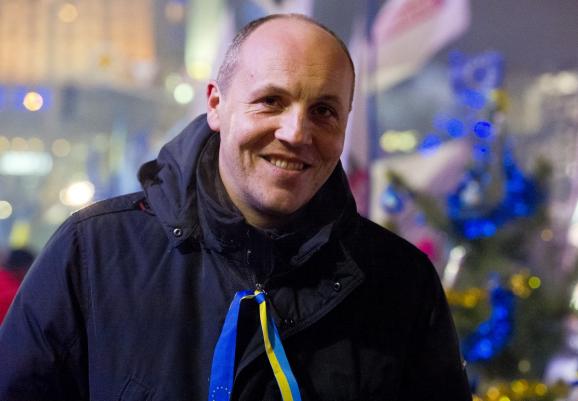
Government service
After the Revolution of Dignity, Parubiy served as Secretary of the National Security and Defense Council, helping establish Ukraine’s National Guard by incorporating Maidan self-defense forces.
As Russia’s hybrid war intensified through 2014-2016 with cyber attacks, disinformation campaigns, and continued fighting in the east, Parubiy’s anti-Russian stance proved increasingly justified.
He served as Ukraine’s Parliament Speaker from 2016 to 2019, working to counter what he described as Russian attacks on Ukrainian language and culture.
Parubiy joined territorial defense in 2022
When Russia launched its full-scale invasion in 2022, the 58-year-old Parubiy joined territorial defense forces and served at checkpoints around Kyiv. He consistently advocated for complete destruction of what he termed the “Russian empire,” arguing that Russia would remain a perpetual threat if not decisively defeated.
“This is today a chance for the Ukrainian army and people to destroy this empire. If it doesn’t die today, it will continue to remain a threat to us, to our children,” he declared.
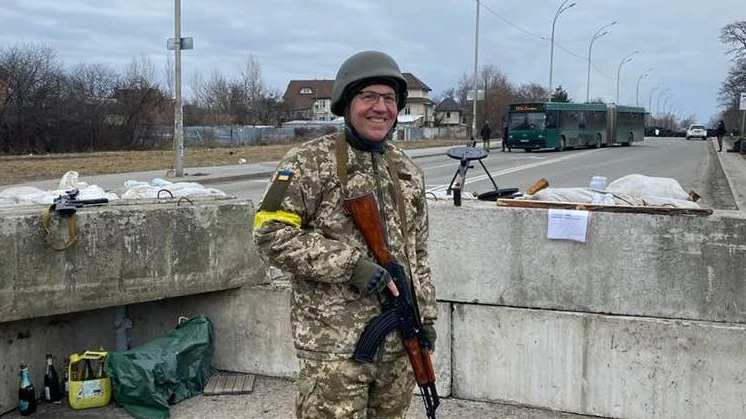
Personal grief or Russian manipulation?
The suspect Mikhaylo Stselnnikov, a 52-year-old from Lviv, had lost his son Mikhaylo-Viktor “Lemberg” during fighting in Bakhmut in May 2023. The young soldier, fighting with the elite 93rd Mechanized Brigade, went missing and was never recovered.
Stselnnikov’s former wife revealed they hadn’t spoken in 27 years. Neither she nor their deceased son maintained contact with the accused. Yet somehow grief transformed into political violence.
The suspect disguised himself as a delivery courier and approached Parubiy from behind on 30 August 2025. He fired at least eight shots to the Parubiy’s back and fled.
In court, Stselnnikov called his actions “revenge on Ukrainian authorities” and rejected suggestions of Russian manipulation. He claimed he wanted quick sentencing so he can be exchanged for prisoners of war to get to Russia and recover his son’s body as the Russians had promised him.
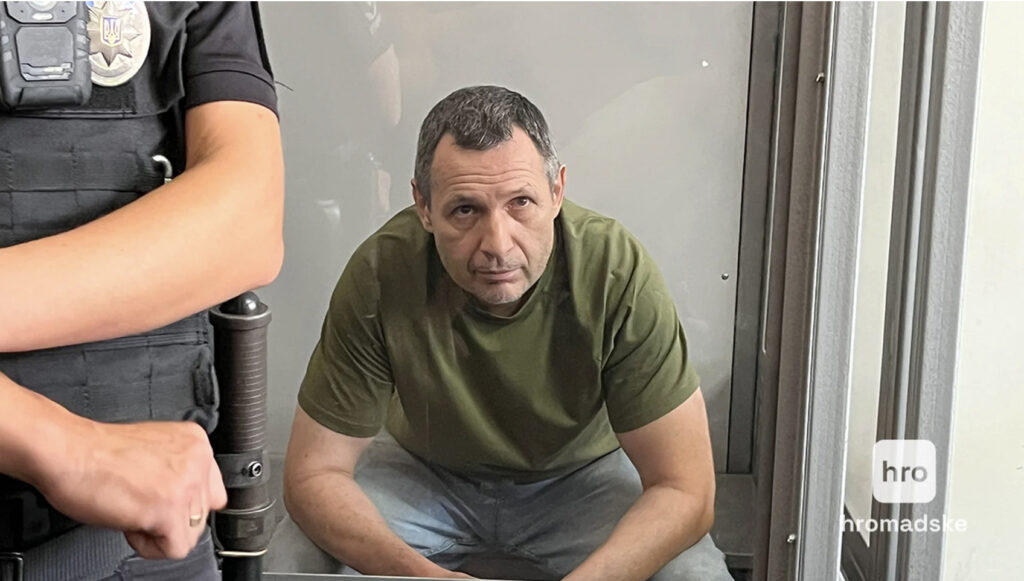
However, investigative sources suggest the killing followed a pattern of Russian intelligence exploiting personal tragedies to recruit assassins. This method allows Russia to eliminate targets while maintaining plausible deniability—the perpetrator genuinely believes they’re acting from personal grief rather than foreign manipulation.
Whether Stselnnikov was directly recruited or simply influenced by Russian information campaigns promising body recovery remains under investigation.
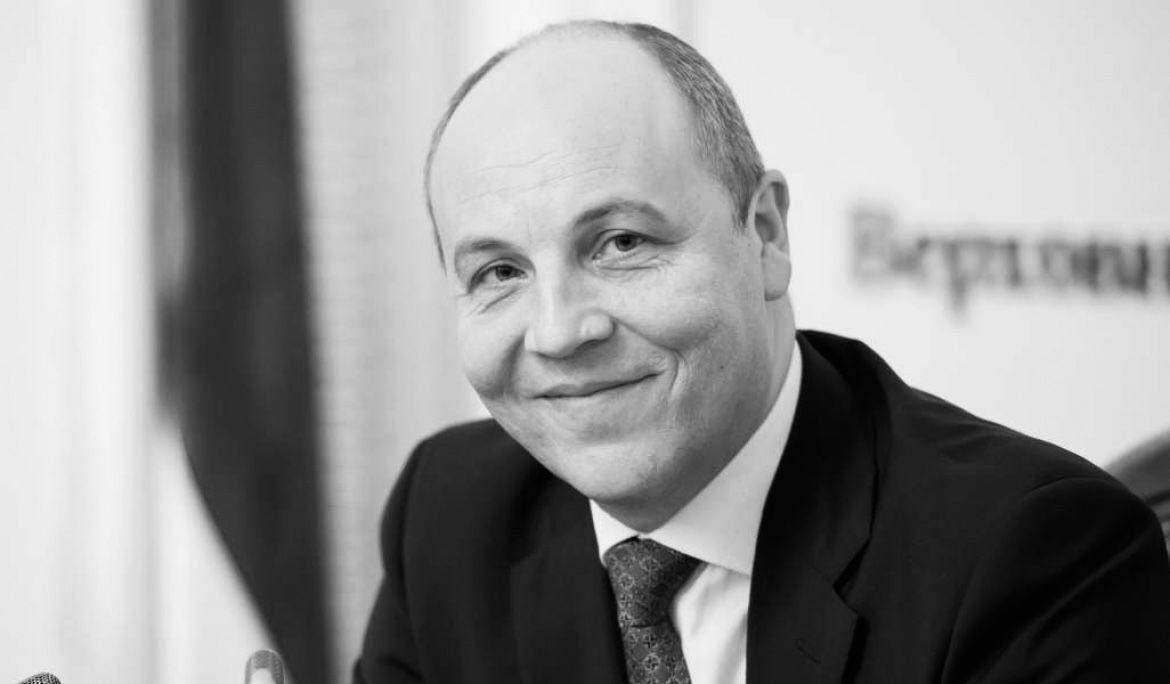
“Revenge on Ukrainian authorities”: Suspect says he killed to find son’s body, while officials investigate Russian link to lawmaker assassination
The price of fighting for Ukrainian identity and independence
Across eleven years, six figures who exposed Russian lies, defended Ukrainian identity, and resisted Kremlin control were murdered in Ukraine. This pattern reveals a systematic campaign to eliminate the voices that challenge Russian narratives.
While fierce battles continue on the front line, Russia also targets the voices that expose imperial lies and strengthen national sovereignty. The aim is to create fear, silence opposition, and fracture the national unity that sustains resistance.
Direct FSB involvement appears evident in cases like SBU colonel’s assassination, but other killings show how Russian intelligence can exploit personal tragedies and ideological divisions to achieve similar results.
The continued targeting of pro-Ukrainian figures in Ukraine indicates that the struggle for independence encompasses not only territorial liberation of occupied territories but also protection of those who defend Ukraine’s sovereignty against Russian attempts at control in Ukraine that have persisted for centuries.
Read also
-
“Revenge on Ukrainian authorities”: Suspect says he killed to find son’s body, while officials investigate Russian link to lawmaker assassination
-
Ukraine exposes Russian death lists of prominent figures after parliament speaker’s assassination in Lviv
-
Russian spy rented apartment to monitor Ukrainian drone supplier Sternenko for weeks before failed assassination attempt
-
FSB agent arrested in Kharkiv for soldier’s murder and planned assassination of regional governor

